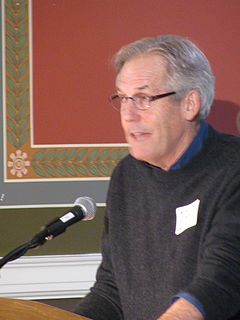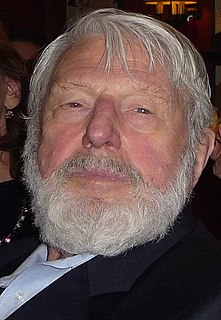Top 54 Epistemology Quotes & Sayings
Explore popular Epistemology quotes.
Last updated on April 14, 2025.
There is not a single rule, however plausible, and however firmly grounded in epistemology, that is not violated at some time or other. It becomes evident that such violations are not accidental events, they are not results of insufficient knowledge or of inattention which might have been avoided. On the contrary, we see that they are necessary for progress.
The authority of science promotes and encourages the activity of observing, comparing, measuring and ordering the physical characteristics of human bodies. Cartesian epistemology and classical ideals produced forms of rationality, scientificity and objectivity that, though efficacious in the quest for truth and knowledge, prohibited the intelligibility and legitimacy of black equality. In fact, to "think" such an idea was to be deemed irrational, barbaric or mad.
[...] intelligent people only have a certain amount of time (measured in subjective time spent thinking about religion) to become atheists. After a certain point, if you're smart, have spent time thinking about and defending your religion, and still haven't escaped the grip of Dark Side Epistemology, the inside of your mind ends up as an Escher painting.
Epistemology now flourishes with various complementary approaches. This includes formal epistemology, experimental philosophy, cognitive science and psychology, including relevant brain science, and other philosophical subfields, such as metaphysics, action theory, language, and mind. It is not as though all questions of armchair, traditional epistemology are already settled conclusively, with unanimity or even consensus. We still need to reason our way together to a better view of those issues.
If one does not make human knowledge wholly dependent upon the original self-knowledge and consequent revelation of God to man, then man will have to seek knowledge within himself as the final reference point. Then he will have to seek an exhaustive understanding of reality. He will have to hold that if he cannot attain to such an exhaustive understanding of reality he has no true knowledge of anything at all. Either man must then know everything or he knows nothing. This is the dilemma that confronts every form of non-Christian epistemology
In order to live, man must act; in order to act, he must make choices; in order to make choices, he must define a code of values; in order to define a code of values, he must know what he is and where he is – i.e. he must know his own nature (including his means of knowledge) and the nature of the universe in which he acts – i.e. he needs metaphysics, epistemology, ethics, which means: philosophy. He cannot escape from this need; his only alternative is whether the philosophy guiding him is to be chosen by his mind or by chance.
Paul Otremba’s remarkable first book, The Currency, is an intriguing foray into lyric epistemology that tries to come to ter ms with the implacable, paradox-ridden nature of knowledge and experience. These are deeply felt, deeply meditated poems guided by a sensibility highly attenuated to the physical world. In their openness to friendship and love and in their fearless directness, they remind me of the work of Larry Levis and Jon Anderson. Like Levis and Anderson, Otremba promises to be an influential and important voice for his generation.
I do think that an understanding of contemporary work in the cognitive sciences has a profound effect on how one views the workings of the mind. It doesn't work the way we pretheoretically think it does. Such an understanding, of course, should have a large effect on one's views in philosophy of mind, but also in epistemology.
The computer revolution is a revolution in the way we think and in the way we express what we think. The essence of this change is the emergence of what might best be called procedural epistemology-the study of the structure of knowledge from an imperative point of view, as opposed to the more declarative point of view taken by classical mathematical subjects.
One of the goals of scientific theorising is to develop concepts which are adequate to the phenomena under study. In my view, things should work the same way in epistemology. We want to know what knowledge actually amounts to, not what our folk concept of knowledge is, since, just as with our pretheoretical concept of acidity, it might contain all sorts of misunderstandings and leave out all manner of important things.
Bealer argues that the kind of naturalistic view which Quine holds will rob him of the ability to make the normative claims which (many) naturalists wish to make in epistemology. I don't think this is right about Quine, but I'm certain it's not right about my own view. To the extent that I can show that talk of knowledge is firmly rooted within empirical theories where it plays an important explanatory role, I thereby demonstrate its naturalistic credentials.
Because those who hold conspiracy theories typically suffer from a crippled epistemology, in accordance with which it is rational to hold such theories, the best response consists in cognitive infiltration of extremist groups. Various policy dilemmas, such as the question whether it is better for government to rebut conspiracy theories or to ignore them, are explored in this light.
Internalist approaches to epistemology, I believe, have a great deal of intuitive appeal. Internalists believe that the features in virtue of which a belief is justified must somehow be internal to the agent. On some views, this amounts to the claim that these features must be accessible to introspection and armchair reflection. On others, it amounts only to the claim that they must be mental features.
Most artists, or at least most of the ones I know, deny having a philosophical outlook that they try to translate into their works. Some had thought of the work of Cezanne and others as being a 'painted epistemology.' But Cezanne himself denied this and Daniel-Henri Kahnwiler, the art critic and art dealer, insisted that none of the many painters he had known had a philosophical culture.
When I first began studying philosophy, a good deal of what went on in analytic epistemology was focused on addressing the Gettier problem. At first, I became quite caught up in it, and the kind of analytical ingenuity required for the work appealed to me. After a while, however, I started to lose interest.
About 70% of what I've written about is centered on the clashes and conformities between the emerging life and physical sciences and older metaphysical frameworks in the 17th and 18th centuries. The other 30% consists of one-off essays or researches into other intriguing contemporary topics such as visual experience, aesthetics, social justice issues, and the epistemology of moral knowledge.
The great philosophers of the 17th and 18th centuries did not think that epistemological questions floated free of questions about how the mind works. Those philosophers took a stand on all sorts of questions which nowadays we would classify as questions of psychology, and their views about psychological questions shaped their views about epistemology, as well they should have.
The world of physics is essentially the real world construed by mathematical abstractions, and the world of sense is the real world construed by the abstractions which the sense-organs immediately furnish. To suppose that the "material mode" is a primitive and groping attempt at physical conception is a fatal error in epistemology.
Our culture's adjustment to the epistemology of television is by now all but complete; we have so thoroughly accepted its definitions of truth, knowledge and reality that irrelevance seems to us to be filled with import, and incoherence seems eminently sane. And if some of our institutions seem not to fit the template of the times, why it is they and not the template, that seem to us disordered and strange.
The indispensability argument seeks to assimilate the epistemology of metaphysical statements to the epistemology of statements that are obviously empirical. I think it fails to achieve this goal. The argument does not refute the Carnapian thesis that scientific theories and metaphysical claims differ epistemologically - observations can provide evidence for the former, but not for the latter.
Too often preachers want to deal with people simply at the level of publicly accessible reason. We participate with them in their own epistemology. But this is not New Testament preaching. We have a message that is not from this world; it is from God. We don't know it by our own cleverness; we know it because God has revealed it.
The idea of a method that contains firm, unchanging, and absolutely binding principles for conducting the business of science meets considerable difficulty when confronted with the results of historical research. We find, then, that there is not a single rule, however plausible, and however firmly grounded in epistemology, that is not violated at some time or another.
What we're starting to see is a quantum biology, it being applied in biology and cosmology and a host of other sciences, because it does really pertain to how we know. It really helps bring epistemology, which is how do we know what we know, out of the realm of philosophy and brings it into the realm of science.



































